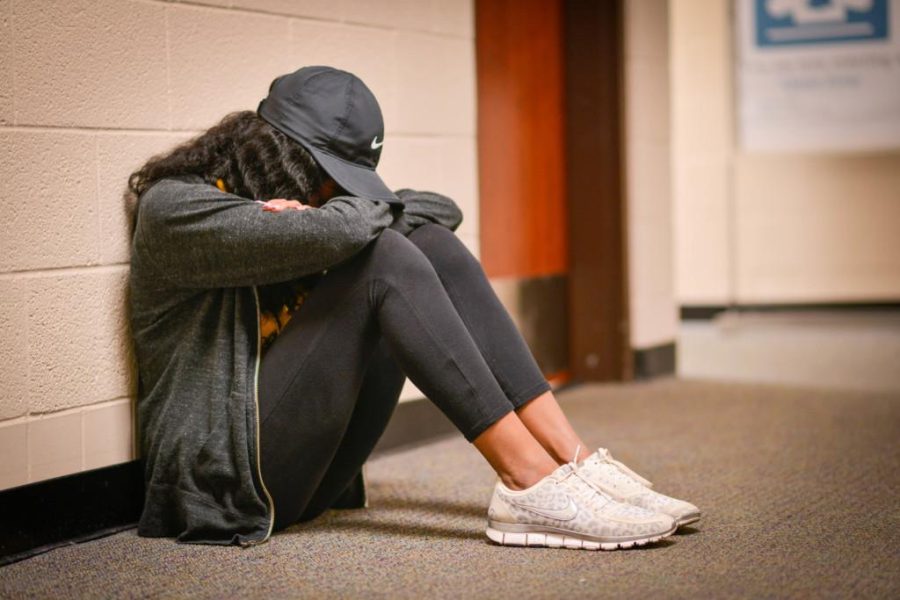Story by Abby Siegel, News Editor, and Lindsey Coleman, Staff writer
“I would shake in fear on nearly a daily basis because I didn’t trust anyone,” said Abbey Avis, sophomore from Evansville, Indiana. “I always hated myself for that because I felt so pathetic, like I was weak or something.”
Avis said she struggled with anxiety since she was 8-years-old. Multiple major events in her life caused Avis to be crippled by fear. She said she would avoid driving after being involved in a wreck, and she couldn’t trust anyone after being in abusive relationships.
“I think that is the hardest part about anxiety for me – being misunderstood,” Avis said. “I’m often told things like, ‘Just don’t worry about it’ or ‘You aren’t even being rational,’ but anxiety is something that isn’t easily controlled but rather faced.”
According to the Association for University and College Counseling Center Directors, anxiety is the most predominant and increasing concern among college students, followed by depression, relationship concerns, suicidal ideation, self injury and alcohol abuse.
Angie Trzepacz, University Counseling Services director, said depression is the No. 1 issue for Murray State students at the center, but anxiety closely follows.
“At Murray State, many of our clients list both anxiety and depression as their presenting issues, but when asked to identify their primary concern, over the past few years, 35 percent of incoming clients have indicated depression and 30 percent have indicated anxiety,” Trzepacz said.
According to the National Institute of Mental Health, 75 percent of all individuals with an anxiety disorder will experience symptoms before age 22, and people with generalized anxiety disorder may experience symptoms of prolonged worry, restlessness, fatigue, muscle tension and sleep problems.
Channing Phillips, counselor at University Counseling Services, said many Murray State students come in with symptoms of anxiety, and counselors at the center teach them ways to handle it, including self-soothing or relaxing.
“I think it’s good for some people to seek out that help,” Phillips said. “We try to advocate and help individuals learn how to cope so they know how to handle it before it gets to the point where it’s affecting them… when they feel like they’re giving in or giving up.”
Avis said she didn’t realize she needed help with her anxiety until she came to Murray State. As her friendships grew and her involvement at the Baptist Campus Ministry increased, she said she found ways to cope with her anxiety.
“I have never felt so loved in my life, and everyone here has really changed my perspective on my own anxiety,” Avis said. “I’ve never really had that before, and I think that’s the best thing we can do for those with anxiety, to just watch out for everyone in general and to always be kind no matter what kind of a day we are having.”
Phillips said students often recognize they need help when they “run out of options” or can’t cope with what’s happening.
“I think anxiety is a normal thing – it’s learning how to handle it,” Phillips said.
Avis said despite a negative stigma about seeking counseling, it can be one of the bravest decisions someone experiencing anxiety can make.
“Anxiety can do a lot of things, but it doesn’t ever define you,” Avis said.
She said she refuses to let anxiety take over her life. As a middle schooler, she was referred to as “mute,” but now, she performs spoken word.
“Anxiety is terrifying, but it doesn’t have to be crippling,” Avis said. “I’m terrified to death of everything, but I keep making steps towards what I am afraid of because I don’t want it to control me.”



























































































